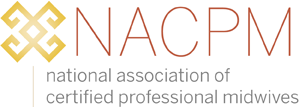NACPM is proud to share the newest report from the National Partnership for Women and Families: Improving Our Maternity Care Now Through Community Birth Settings, a companion report to Improving Our Maternity Care Now Through Midwifery. NACPM is one of five national organization that partnered and contributed to both reports, including the American Association of Birth Centers, American College of Nurse-Midwives, Birth Center Equity, and the National Black Midwives Alliance.
The tragic reality is that our perinatal care system fails to provide many childbearing people and newborns with equitable, accessible, respectful, safe, effective, and affordable care. More people per capita in the U.S. die or suffer severe injuries from pregnancy and childbirth than in any other high-income country in the world. The system most spectacularly fails birthing people in communities struggling with structural inequities due to racism and other forms of disadvantage, including Black, Indigenous, People of Color, and those with low incomes or living in rural communities.
The good news shared in this report is that research shows specific models of care, including care provided in community birth settings (homes or at freestanding community birthing centers), led almost exclusively by midwives, makes a concrete difference in improving perinatal care quality and produces better outcomes.
From Khailylah (Kiki) Jordan, CPM, LM, NACPM President: “This report constitutes a powerful case for the critical role for the model, settings, and providers of community birth in addressing overall poor perinatal outcomes in our country, and especially in eliminating the unconscionable disparities and inequities impacting Indigenous and communities of color.”
This report outlines the evidence that supports the unique value of community birth settings across different communities, the safety and effectiveness of care in these settings in improving maternal and infant outcomes, the interest of birthing people in use of birth centers and home birth care, and the current availability of, and access to, community birth settings care in the United States.
From Jamarah Amani, Executive Director of National Black Midwives Alliance: “…The growing demands of Black families for access to community birth reflects a need to develop and expand the workforce of culturally centered, community-based midwives, providers who are trained to ground their practices in respect, dignity and autonomy.”
These settings are an essential part of the solution to the nation’s perinatal health crisis, especially when they offer culturally congruent care to people impacted by racism and other forms of discrimination. The Centers for Disease Control and Prevention (CDC) found that more pregnant people are taking control of their birth experience by choosing to give birth in a community rather than a hospital, with a rise of 20% between 2019 and 2020. The greatest increase was for Black parents (30%), Indigenous (26%), and Hispanic (24%) parents – especially striking as these are the communities currently with the least access to community birth. Factors contributing to this increase like include, in addition to concerns about COVID exposure in hospitals, the desire to retain autonomy during birthing, deciding who will be present, preventing unnecessary interventions and restrictions, and avoiding the disrespect, discrimination, and structural racism that too often occurs in hospitals, resulting in lower-quality care.
From Birth Center Equity co-directors Leseliey Welch and Nashira Baril: "This report offers rich and compelling data to support the wisdom that Black, Indigenous, communities of color have long known: that the best way to ensure safe, culturally reverent, and liberatory birthing experiences is to invest in community-led solutions…”
The report provides two dozen policy considerations for federal and state policymakers to make access to community birthing more accessible and reimbursement more widespread for those services. NACPM looks forward to collaborating to promote these vital recommendations to policymakers and payers to ensure universal and equitable access to community birth and health for all childbearing people and their babies.

